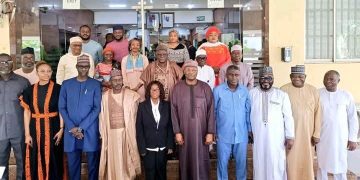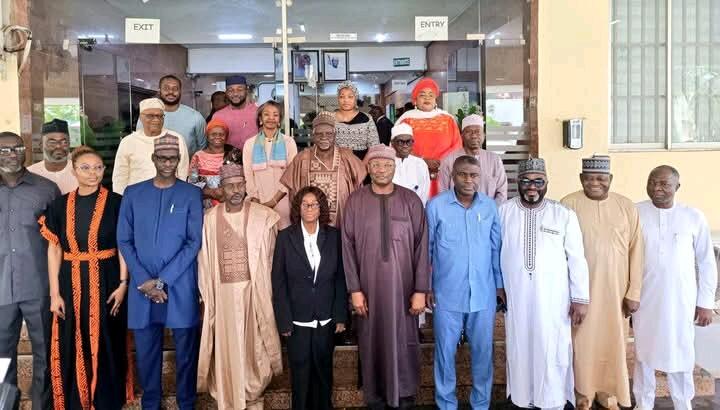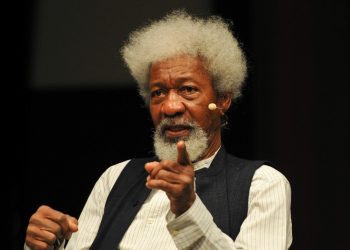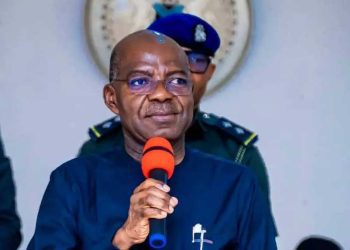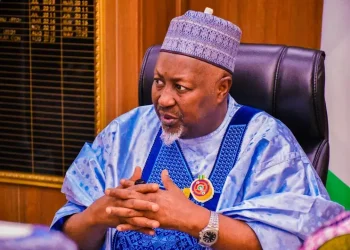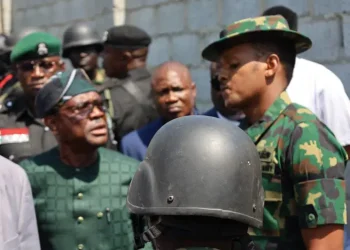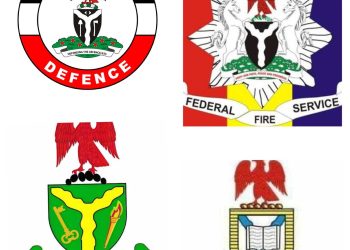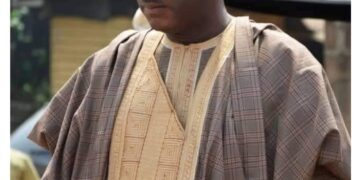In what many observers see as a significant step for electoral reform and regional cooperation, the Independent National Electoral Commission (INEC) on Monday received a high-level delegation from the ECOWAS Network of Electoral Commissions (ECONEC).
The visit, which took place at INEC’s headquarters in Abuja, was part of a post-election follow-up and needs assessment mission to evaluate Nigeria’s progress since the landmark 2023 general elections.
The delegation, led by Mrs. Davidetta Browne-Lansanah, Chairperson of Liberia’s National Elections Commission, and supported by Dr. Bossman Asare, Deputy Chair of Ghana’s Electoral Commission, came not merely to observe but to engage in meaningful dialogue.
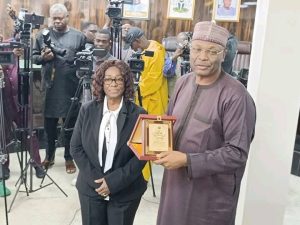
According to reports from Daily Post and The Nation, the mission is designed to assess how Nigeria has responded to the recommendations made by the ECOWAS Election Observation Mission after the 2023 polls.
Importantly, it also aims to foster peer learning across the West African region by sharing practical lessons from Nigeria’s electoral experience.
Speaking during the visit, INEC Chairman Professor Mahmood Yakubu provided a detailed account of reforms undertaken so far. ECOWAS had earlier issued 37 recommendations following the 2023 elections,13 of which were specifically directed at INEC, while the remaining 24 concerned other key stakeholders including the National Assembly, Nigeria Police Force, political parties, media regulators and civil society organisations.
Yakubu revealed that INEC has fully implemented all administrative recommendations within its mandate, while the legal and constitutional reforms are currently being reviewed by the National Assembly. Beyond that, INEC has proactively developed and published a comprehensive 142-point reform agenda, reflecting a broader commitment to electoral integrity.
The ECONEC mission is proof of a wider recognition that credible elections cannot be the responsibility of electoral commissions alone. Professor Yakubu emphasized the need for sustained collaboration with multiple stakeholders such as the Inter-Party Advisory Council (IPAC), civil society groups, the media, and international development partners including GIZ, EISA and International IDEA.
The presence of ECONEC, as a platform bringing together electoral commissions from across West Africa, adds an extra layer of accountability and shared learning to Nigeria’s ongoing reform process.
Mrs. Browne-Lansanah explained that this post-election follow-up mission is part of ECONEC’s broader mandate to strengthen democracy across the region by promoting dialogue and encouraging election management bodies to continuously learn from each other.
The delegation’s visit to Nigeria comes after a similar peer review by INEC itself to The Gambia earlier this year, demonstrating how knowledge exchange within the network is not just one-directional but genuinely collaborative.
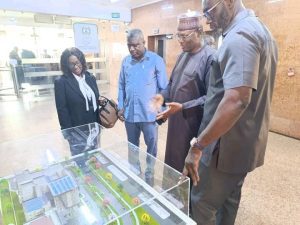
As Nigeria continues to refine its electoral processes in the build-up to future elections, this engagement with ECONEC could play a vital role in shaping reforms that go beyond administrative tweaks to include more profound legislative and institutional changes. For many observers, the willingness of INEC to openly host such missions, discuss its progress and challenges, and publish detailed reform plans shows a serious commitment to accountability and transparency.
In the end, the visit ultimately reveals an evolving trend in West Africa, where election commissions increasingly see themselves not merely as national institutions but as part of a wider community tasked with defending and deepening democratic norms.
With administrative measures already addressed and broader reforms underway, Nigeria’s example could soon influence electoral practices far beyond its own borders and into the future, an outcome that aligns perfectly with ECONEC’s mission of regional solidarity and shared progress.
